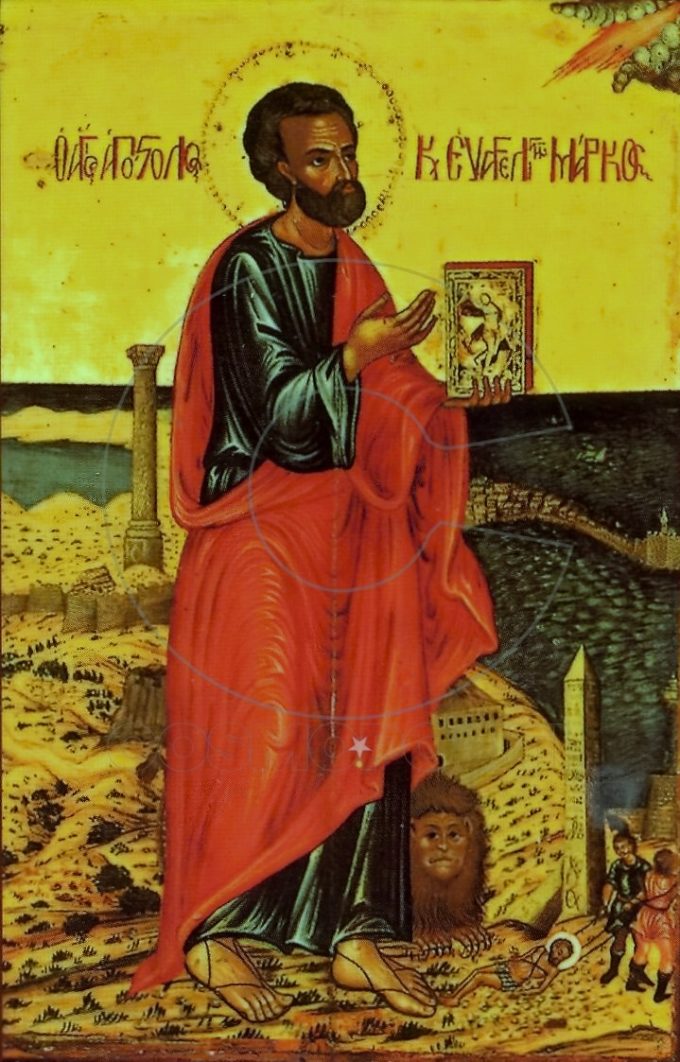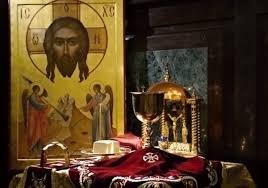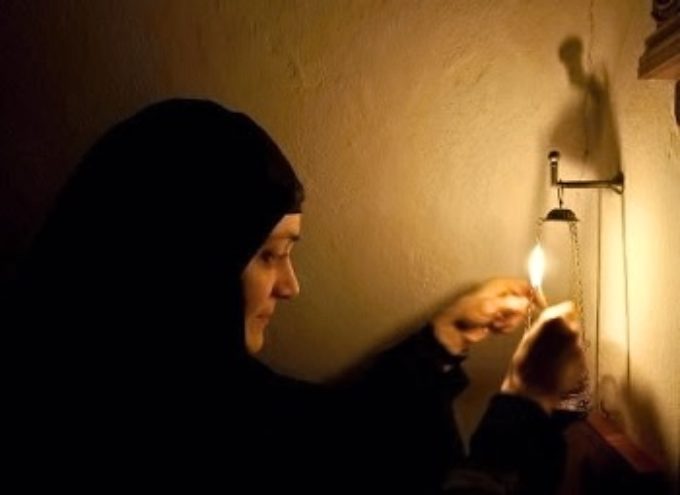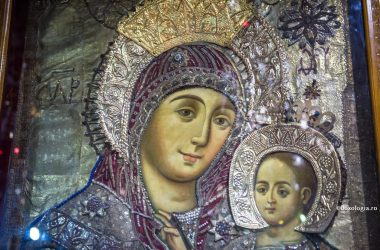In the Easter Chronicle of Alexandria (volume 1, page 432) is related the following tradition: this year (indict. 11, 3) Mark the Evangelist went to preach the Word of Christ to the Egyptians and the inhabitants of Alexandria founding first the Churches from Alexandria that he had lead for 22 years. Although it is not quite precise this tradition indicates the fact that Mark spent many years in Egypt. According to Eusebius Mark died in Egypt in the 8th year of Nero’s reign who was emperor from 54 to 68. And in the 8th year of Nero’s reign Anianos followed Mark the Apostle and Evangelist as the first one after him in serving the community from Alexandria; and this was a God loving man and wonderful in everything [Eusebius Ecclesiastical History volume II, chapter 24]
Thus the death of Mark the Apostle took place in 62. And because Peter’s epistle mentions Mark, it results that it is subsequent to the first epistle written by Paul from the jail, those to the Ephesians written around 60-61
It results the fact that Peter’s epistle was written shortly after Paul’s epistle to the Ephesians seen by Peter and not long before Mark’s death. Thus Peter was on that year with Mark in Egypt and Babylon is the Egyptian Babylon located southwards from Heliopolis. From here it derives Peter’s silence in what regards the Syrian Babylon hidden under the name of Asia. Thus in vain try the inventors of the imaginary Babylon presented as Rome to give the impression that Peter went there. Peter remained in Babylon. The evidence brought by the Western theologians for proving the oldness of the imaginary Babylon we talked about (and which is Rome) has no value because they misinterpret Eusebius and Eusebius took his information for unsure sources. He presents as a true historical fact even the story about Simon the Magician which represents the basis for expressing the opinion that the Holy Gospel after Mark was written at Rome, thing which is also related by Clement from Alexandria [Eusebius, Ecclesiastical History, book II, chapters 14-15]. Thus Babylon is Babylon and that isn’t Rome and while Paul was in his first years of jail Peter was with Mark in Babylon.
Peter’s stay in Egypt is established from two historical information which attest the data already presented. These information although not quite exact claim the fact that Peter was in Egypt from 62 when he wrote his first epistle from the Egyptian Babylon. But the historical information given by Eusebius about Mark’s death seem inaccurate, because according to Paul’s epistles to the Colossians (4,10) and to Filimon (verse 24) both written in Rome, Mark was with Paul and in the second epistle to Timotheus he calls him in Rome. The first of these epistles was written around 63-64 and the second around 65-66. Thus the historical information provided by Eusebius about the date of Mark’s death cannot be accurate. What is indicated accurately in history and in the epistles is the fact that Peter didn’t go to Rome during that time and Mark served with Paul from 62-63 until 66 or even more.
The hypothesis of Peter’s trip to Rome during Paul’s stay of two years cannot be correct either because the Acts and the second Epistle to Timotheus and that addressed to the Jews negate this. The Acts say (28, 30-31):
For two whole years Paul stayed there in his own rented house and welcomed all who came to see him. He proclaimed the kingdom of God and taught about the Lord Jesus Christ—with all boldness and without hindrance!.
The Acts end with these words. What does it result from Luke’s words? Does it ensue that Peter went to Rome? Does it result that Paul confessed in Rome? Of course not. So what does it result then? It results the fact that around 65-66 Peter was not in Rome and Paul wasn’t martyred yet and he had preached the Kingdom of God in Rome alone for two years.
This evidence is sustained by the second epistle to Timotheus (4, 9-22), where Paul writes to Timotheus: For two whole years Paul stayed there in his own rented house and welcomed all who came to see him. He proclaimed the kingdom of God and taught about the Lord Jesus Christ—with all boldness and without hindrance!
What comes out from Paul’s words?
- a) the fact that he was alone;
- b) that those who were with him had left him except for Luke;
- c) that he defended himself;
- d) that God appeared to him and strengthened him so that his preach would reach the ears and knowledge of all peoples and that he was rescued from the mouth of the lion. From the first it results that Peter wasn’t in Rome, from the second that Luke was a faithful witness, from the third that Paul defended himself twice in front of Nero (thing indicated by the note from the end of the epistle) for the accusation which made him be brought tied to Rome and not for the accusation of setting Rome on fire, from the fourth the fact that God strengthened him so that he could bring the good news to the knowledge and hearing of all peoples, fact which shows that his apostolic mission wasn’t ended and it began a new stage of his fight and the fifth the fact that he was saved from the danger, being set free and declared innocent and exonerated from the accusations brought against him. The cape and parchments he asks Timotheus to bring for him show the desire of a free man and not of someone who was in chains. Thus Paul around 65-66 is free in Rome, thing which is accepted by many of the exegetes who speak about a second trip made by Paul to Rome when they say that he suffered martyrdom. But this fact it is not testified by the Holy Scriptures. So as long as Paul didn’t die in 66 but made a new missionary trip how could he be martyred with Peter in 66 when he was in Rome?






